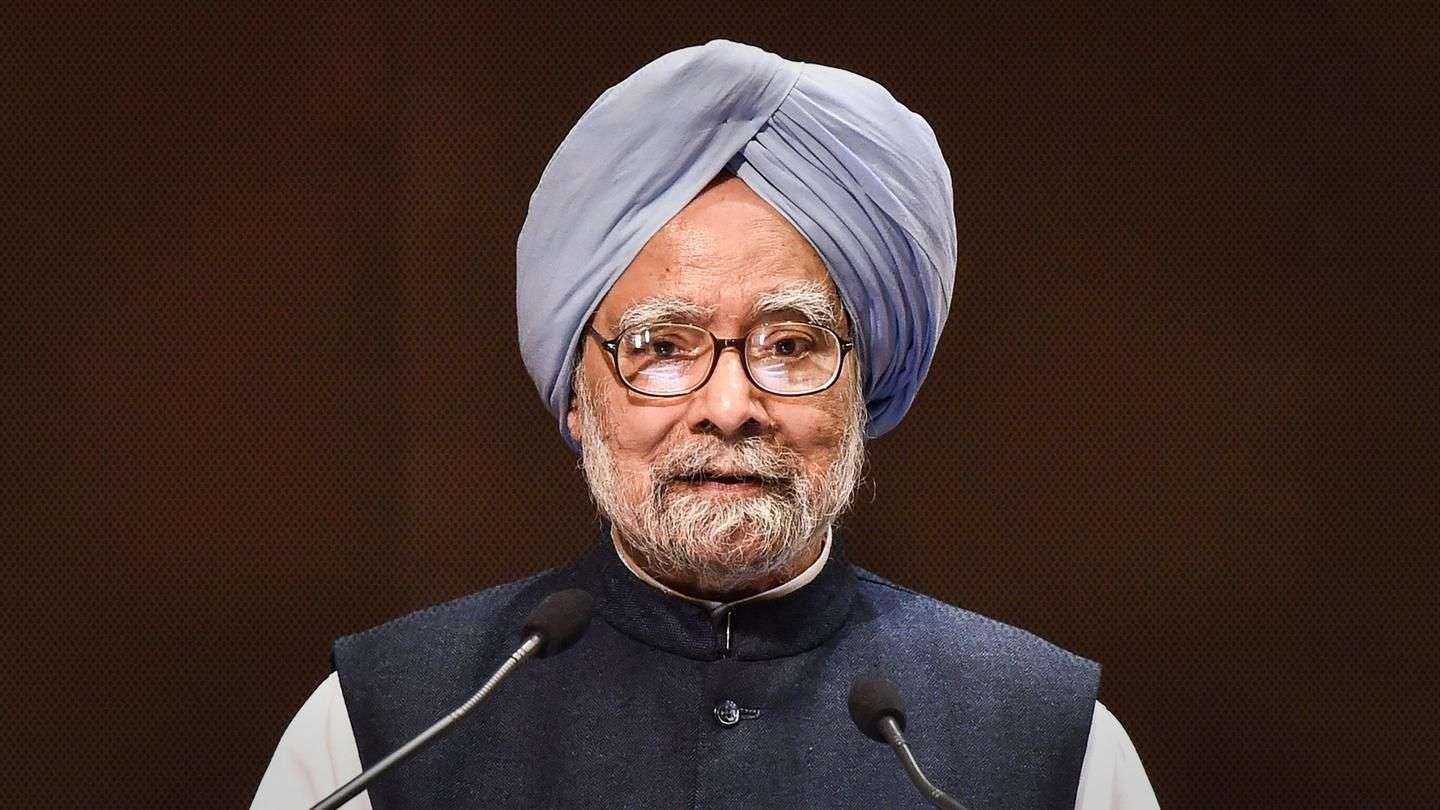


Dr. Manmohan Singh, a revered leader and former Prime Minister of India, passed away at the age of 92. Known for his integrity and visionary leadership, he pioneered economic liberalization in 1991, leading India to global prominence. His tenure was marked by a commitment to inclusivity, secularism, and financial reforms. As we mourn his loss, let us pay tribute to his enduring legacy through his insightful and inspiring quotes on unity, diversity, and a mixed economy.
Dr. Manmohan Singh: A Legacy of Leadership, Vision, and Reform
Dr. Manmohan Singh, India's revered former Prime Minister, passed away recently at the age of 92. He was a towering figure in Indian politics and economics, leaving an enduring legacy of integrity, visionary leadership, and transformative reforms.
Early Life and Education
Born in 1932 in undivided India, Dr. Singh's early life was marked by poverty and hardship. Despite these challenges, he excelled in academics, graduating with honors from Cambridge University. He later earned a doctorate in economics from Oxford University.
Career as an Economist and Bureaucrat
Dr. Singh held various prestigious positions as an economist, including Chief Economic Adviser to the Government of India and Governor of the Reserve Bank. His expertise played a crucial role in shaping India's economic policies.
Prime Ministership (2004-2014)
In 2004, Dr. Singh became Prime Minister of India, leading a coalition government. His tenure was characterized by the following initiatives:
Contributions to India's Development
Under Dr. Singh's leadership, India achieved significant progress in various areas, including:
Legacy and Impact
Dr. Manmohan Singh's legacy as a leader and economist continues to inspire generations. His economic liberalization policies paved the way for India's rise as a major economic player on the global stage. His commitment to inclusivity, secularism, and financial reforms has left a lasting impact on Indian society.
Top 5 FAQs
Q1: What were some of Dr. Singh's most famous quotes? A1: Some of his renowned quotes include "India is a land where unity in diversity is a reality, not a slogan" and "A mixed economy is the only way to ensure that the benefits of economic growth are not confined to the few."
Q2: What was Dr. Singh's role in India's economic liberalization? A2: As Finance Minister in 1991, Dr. Singh spearheaded bold economic reforms that opened up India's economy, reducing trade barriers and promoting foreign investment.
Q3: What was the significance of the National Rural Employment Guarantee Scheme? A3: This scheme provided employment and income support to millions of rural poor households, addressing rural distress and promoting inclusive growth.
Q4: What challenges did Dr. Singh face during his tenure as Prime Minister? A4: He faced challenges such as rising inflation, global economic crises, and internal security threats. However, his steady leadership and economic expertise helped India navigate these challenges.
Q5: How is Dr. Singh's legacy being preserved? A5: His legacy is honored through various initiatives, including the establishment of the Manmohan Singh Institute for Economics and the Manmohan Singh Scholarships for promising students.

Elon Musk's xAI has launched Grokipedia, an AI-powered online encyclopedia to rival Wikipedia. Musk aims for the platform to be a "massive improvement" and free from any political bias. While Grokipedia currently sources content from Wikipedia, Musk plans to have all original content by the end of the year. This development adds to Bihar's political landscape, where leaders like Lalu Prasad and Nitish Kumar have dominated with their OBC politics, while Nitish's developmental narrative has transformed the state's political landscape.

BJP leader Chandrashekhar Bawankule sparked controversy with his statement that party workers' phones and WhatsApp groups are being monitored ahead of local body elections. Shiv Sena leader Sanjay Raut demanded his arrest, alleging that the phones of several Opposition leaders were also tapped. Bawankule clarified his statement, but the Sena leader questioned the involvement of BJP offices and technology networks, calling it a potentially anti-national act.

The Election Commission (EC) has announced the schedule for Special Summary Revision (SIR) of electoral rolls in 12 states and Union Territories (UTs) for the year 2025, excluding Assam due to the ongoing National Register of Citizens (NRC) process. While the BJP has welcomed the announcement, the Congress has raised concerns and questioned the decision. The Chief Election Commissioner (CEC) has stated that Assam has a separate provision in citizenship laws and the NRC process must be taken into consideration, causing potential delays in the SIR preparations. Despite the physical closure of banks in Ranchi and Patna, financial services will remain available through digital and self-service platforms, so customers are advised to use online banking and plan any in-branch visits accordingly.

In a step towards promoting ethical governance and preventing corruption, Chief Secretary Atal Dulloo administered the Integrity Pledge to officers and officials at the Civil Secretariat in Srinagar. This marked the beginning of the National Vigilance Awareness Week, a nationwide campaign held annually by the Central Vigilance Commission. The theme for this year is "Vigilance: Our Shared Responsibility", emphasizing the role of collective efforts in upholding integrity, transparency, and accountability in public administration. Throughout the week, various activities will be conducted to sensitize employees and citizens on the importance of honesty and integrity in governance.

In a bid to promote integrity and fight against corruption, the Central Vigilance Commission has declared the observation of 'Vigilance Awareness Week' with the theme 'Our Shared Responsibility'. Health Minister JP Nadda, during the launch, stressed the need for institutionalizing ethical practices and building a culture of vigilance in every level of governance. He also urged for creating a checklist of do's and don'ts in simple terms to prevent unintentional wrongdoings.

Delhi Environment Minister Manjinder Singh Sirsa chaired a meeting to discuss ways to control dust pollution from construction activities in the city. He revealed that an extensive campaign has been launched to monitor and penalize illegal and unregistered construction projects. The Minister also directed officials to expedite field actions and simplify the registration process to ensure timely intervention against polluters.

In a press conference held in New Delhi, the Election Commission has announced phase two of special intensive revision of electoral rolls in 12 states. This comes after political parties raised concerns about the quality of the rolls. While Tamil Nadu Chief Minister MK Stalin arrived at DMK headquarters to discuss the issue, Assam's electoral roll revision will be announced separately due to the ongoing process of the National Register of Citizens. The EC has assured that there will be no obstacles in implementing the roll clean-up exercise in West Bengal.

President Droupadi Murmu addressed probationers of the Indian Police Service 77 RR (2024 batch) and emphasized the significant role that effective policing and future-ready technology play in promoting growth and attracting investment in any state. She highlighted the transformational impact of technology in the realm of policing and urged young officers to remain ahead in adopting new technologies, including AI, to combat threats to citizens. The President also encouraged ethical decision-making and accountability among young officers occupying positions of power and authority.

CEC Gyanesh Kumar has announced the second phase of the Special Intensive Revision (SIR) of electoral rolls in 12 states and Union Territories, covering 51 crore voters. He also addressed concerns over the state of West Bengal, clarifying that there is no confrontation between the Election Commission and the state government. Additionally, he reminded that Aadhaar card is not proof of citizenship, but can be used as identity proof in the SIR process.

After Chief Justice Gavai's formal recommendation, Union Government is set to appoint Justice Surya Kant as the next Chief Justice of India. With a distinguished legal career and key institutional roles, Justice Kant is highly regarded for his commitment to electoral transparency and landmark verdicts on various issues including abrogation of Article 370 and free speech. His term is expected to begin on November 24, 2025, and last for approximately 15 months.